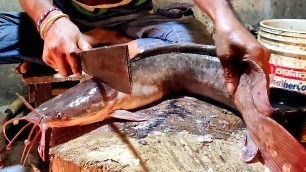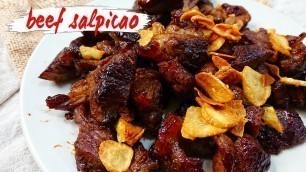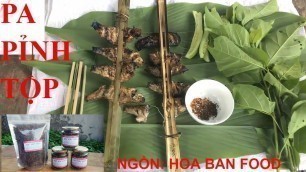

'Worlds Most Expensive Coffee • Kopi Luwak Review | KBDProductionsTV Want more? Check out the Thirsty Thursdays Playlist: https://goo.gl/kbbPQq If you like these videos subscribe to KBDProductionsTV: https://goo.gl/WahCaK ------------------------------------------------------------------------- KOPI LUWAK DIRECT: https://kopiluwakdirect.com/ ------------------------------------------------------------------------- Ken Domik KBDProductionsTV ------------------------------------------------------------------------- Vlogging Channel - https://www.youtube.com/c/KenDomiksLife KBD Uncut & Raw: https://www.youtube.com/c/KBDUNCUTRAW KBDPreiscope: https://www.youtube.com/c/KBDPeriscopeTV YouTube - http://www.youtube.com/user/KBDProductionsTV Twitter - https://twitter.com/KenDomik FaceBook - https://goo.gl/nW12nd Google+ - https://plus.google.com/113137194334536004205/posts Instagram - http://instagram.com/kendomik tumblr - http://kendomik.tumblr.com Skype - kendomik Vine - https://vine.co/Ken.Domik T-Shirts: http://kbdproductionstv.spreadshirt.com/ Periscope: kendomik SnapChat: kendomik Pinterest: https://www.pinterest.com/kendomik/ YouNow: https://www.younow.com/KenDomik Music by Kevin MacLeod http://incompetech.com/m/c/royalty-free/ Song: Slow Ska: ISRC: US-UAN-11-00838 Song: Peppy Pepe - ISRC: USUAN1100115 Song: Mining by Moonlight: ISRC: USUAN1200095 I have a Creative Commons License with Kevin MacLeod and have the rights to use the music in this video. Creative Commons License for Kevin MacLeod, Link... http://creativecommons.org/licenses/b... Information from... https://en.wikipedia.org/wiki/Kopi_Luwak Producers of the coffee beans argue that the process may improve coffee through two mechanisms, selection and digestion. Selection occurs if the civets choose to eat cherries. Digestive mechanisms may improve the flavor profile of the coffee beans that have been eaten. The civet eats the cherries for the fleshy pulp, then in the digestive tract, fermentation occurs. The civet\'s protease enzymes seep into the beans, making shorter peptides and more free amino acids. Passing through a civet\'s intestines the cherries are then defecated with other fecal matter and collected. The traditional method of collecting feces from wild civets has given way to intensive farming methods in which civets in battery cage systems are force fed the cherries. This method of production has raised ethical concerns about the treatment of civets due to \"horrific conditions\" including isolation, poor diet, small cages and a high mortality rate.[3][4] A 2013 BBC investigation of intensive civet farming in Sumatra found conditions of animal cruelty.[5] Intensive farming is also criticised by traditional farmers because the civets do not select what they eat, so the cherries which are fed to them in order to flavor the coffee are of poor quality compared to those beans collected from the wild.[6] According to an officer from the TRAFFIC conservation programme, the trade in civets to make kopi luwak may constitute a significant threat to wild civet populations. Although kopi luwak is a form of processing rather than a variety of coffee, it has been called one of the most expensive coffees in the world with retail prices reaching €550 / US$700 per kilogram,[8] close to the €850 / US$1,100 price of Black Ivory coffee. The price paid to collectors in the Philippines is closer to US$20 per kilogram.The price of farmed (considered low-grade by connoisseurs) kopi luwak in large Indonesian supermarkets is from US$100 per kilogram (five times the price of a high quality local arabica coffee). Genuine kopi luwak from wild civets is difficult to purchase in Indonesia and proving it is not fake is very difficult – there is little enforcement regarding use of the name \"kopi luwak\", and there\'s even a local cheap coffee brand named \"Luwak\", which costs under US$3 per kilogram but is occasionally sold online under the guise of real kopi luwak. Kopi luwak is produced mainly on the islands of Sumatra, Java, Bali and Sulawesi in the Indonesian Archipelago. It is also widely gathered in the forest or produced in the farms in the islands of the Philippines (where the product is called kape motit in the Cordillera region, kapé alamíd in Tagalog areas, and kapé melô or kapé musang in Mindanao island), and in East Timor (where it is called kafé-laku). Weasel coffee is a loose English translation of its Vietnamese name cà phê Chồn, where popular, chemically simulated versions are also produced.'
Tags: Test , eating , Food , hot , drink , drive , Lounge , quality , tea , coffee , starbucks , RESTAURANT , Ken , CAFE , taste , Starbucks (Organization) , thirsty , Beverage , KBDProductionsTV , Coffee (Beverage Type) , Caramel (Ingredient) , domik , kopi luwak , Latte (Dish) , thirsty thursdays
See also:

















comments